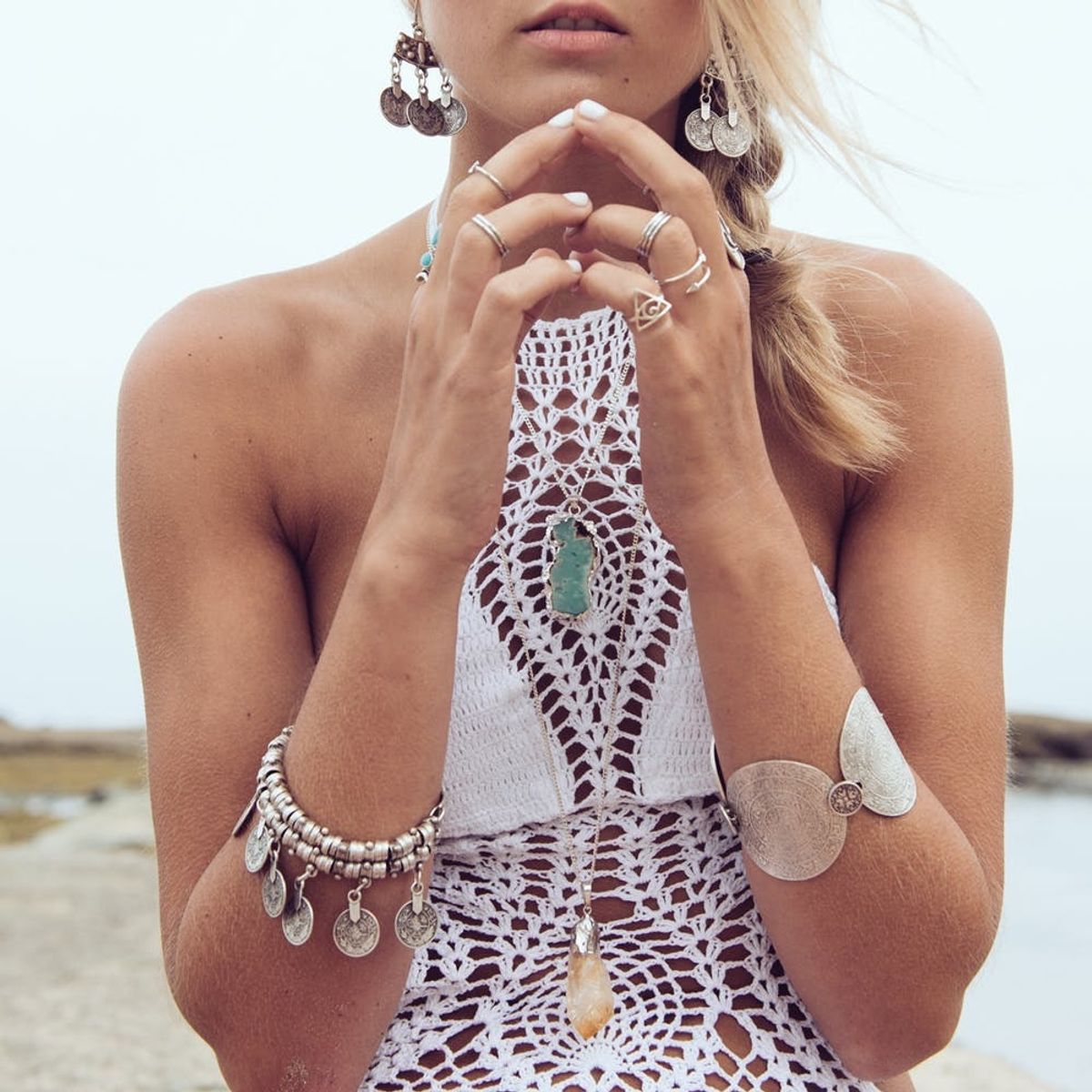The 10 Best Souvenirs to Find in Turkey (+ Where to Buy Online!)

You know those friends you have (or people in your Instagram feed) who always seem to be traveling to some cool exotic locale and bringing back the most amazing things? Trisha Roy, Barn & Willow founder, is just that sort of girl. It was actually Trisha’s wanderlust that inspired Barn & Willow, a home decor company specializing in textiles with fabrics made in Europe (like linen from Belgium). While she’s traveling for work, she always manages to squeeze in a little shopping time. Recently, Trisha and her husband spent 34 days backpacking through Eastern Europe. The highlight of the month was Turkey, which also happens to be a shopping mecca.
1. Turkish Kilim Rugs: “When you think of shopping in Turkey, you think of rugs,” says Trisha. “We saw the most beautiful kilim rugs in the Grand Bazaar.” A 60-block shopping mecca, Istanbul’s Great Bazaar was started in the 15th century, making it the world’s oldest covered marketplace and pretty much the best (or at least most exciting) place to shop for a Turkish rug. Here at home, you can also find kilims on auction sites like eBay, on websites that specialize in Turkish rugs or in vintage stores or thrift shops, where you might stumble upon someone else’s long-ago souvenir.
2. Turkish Kilim Pillow Covers ($79): “If you can’t fit a whole rug into your suitcase or decor scheme, try a cushion cover,” says Trisha. “We bought our kilim pillow covers from the Grand Bazaar.” While nothing compares to the Grand Bazaar shopping experience — where there are more than 5,000 shops! — you can find kilim pillow covers online on eBay or on websites that specialize in goods from Turkey.
3. Turkish Towel ($42): “We couldn’t leave without a famous Turkish bath towel (peshtemal). I love the stripes and tassels, and they are thinner than the average terry cloth, which means that they dry super fast. In Istanbul, Lalay Dunyasi is a favorite shop for all things bath-related.” The Turkish hamam is the ultimate spa experience and is a direct descendant of the Roman baths. Peshtemals are the traditional towels of the hamam. After putting your clothes in a locker, you wrap the peshtemal around you for modesty. (Women wrap from the armpit and men from the waist). The peshtemal just happens to be the perfect beach towel because it’s thin and large enough that it can double a sarong.
4. Hammam Spa Exfoliate Gloves ($10): “We also bought some Turkish face scrub cloths. I use them regularly, and they keep my skin super silky and soft. Most of the Turkish Hamas have these.” A true Turkish bath will leave you with baby soft skin, but that softness comes at a price — intense scrubbing. At a traditional hamam, you’ll first relax and loosen up. Once you’ve worked up a bit of a sweat, a masseur will massage and then scrub you. You can find the gloves that they use on Amazon for around $10, but this Baiden Mitten ($50) has a cult following. Apparently, you can’t put a price on softness.
5. Turkish Black Soap ($12): This soap is “traditionally used in the Hammam, along with the exfoliating gloves to keep your skin super soft,” says Trisha. If you’re using it at home, you want to wait 10 minutes into your bath or shower before applying it to your body. Leave it on for five minutes. After rinsing, scrub, scrub, scrub with the exfoliating glove. You should see the dead skin peel off, which is both a little gross and a little awesome.
6. Bracelet: Trisha made a trip to Urgup, a small town and the jewelry hub of Turkey. She tells us that she and her husband “visited the Gerome ONYX Jewelry Factory” where she “fell in love with a silver and emerald bracelet.” Shantique Designs has a collection of pieces handmade by artisans in Turkey that you can buy right from your home.
7. Jamie Wolf Diamond and Sapphire Evil Eye Bracelet ($795): In Turkey, the evil eye is a talisman that is worn to protect against an evil curse that someone might bestow on you while you are unaware — basically, a powerful dirty look. But if you have an evil eye charm, you will be protected. Evil eye jewelry has been spotted on almost every celebrity, from Lindsay Lohan to Rihanna. (If you want the evil eye power without the jewelry, there’s always the DIY nail option.)
8. Baklava: “The baklava in Turkey is unlike anything we ever tasted. We visited Karakoy Gulluoglu in Istanbul, which has been making baklava since 1840. I think we managed to try nearly seven different flavors each! We picked out two dozen to take home, but by the time we landed in San Francisco, we only had about half that left!” While there’s nothing quite like eating baklava in Istanbul, you can test your kitchen skills (and impress everyone in the process) with this homemade version.
9. Blue Ceramics: “Turkey is famous for its ceramics. One of my favorite experiences was taking a class to try to make my own. It’s much harder than it looks!” These blue ceramics are inspired by ebru, the Turkish paper marbling technique. When artisans replicate the look in ceramics, they do it without paint. The marble look comes from a blend of natural clays.
10. Turkish Coffee Pot ($10) “Çadircilar Caddesi, near the Grand Bazaar has the best collection of copper vessels, tea pots, spice grinders etc.” The copper artisans in Turkey have an outstanding skill. The tradition of coppersmithing in Turkey is an ancient one. If you can’t make it to Turkey to shop, you can find beautiful pieces in online specialty stores or Ebay.
If you could shop anywhere in the world, where would you go for your dream shopping trip?



















